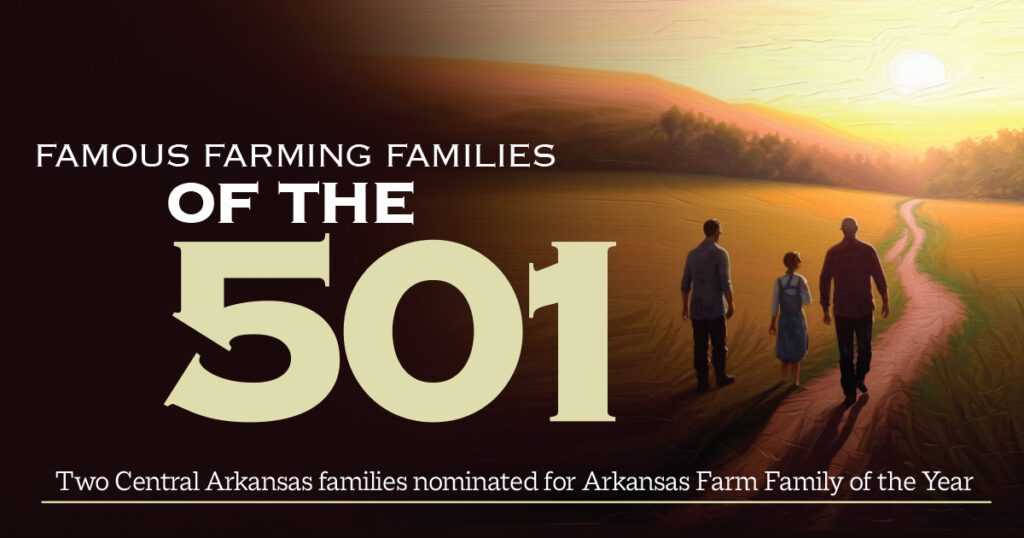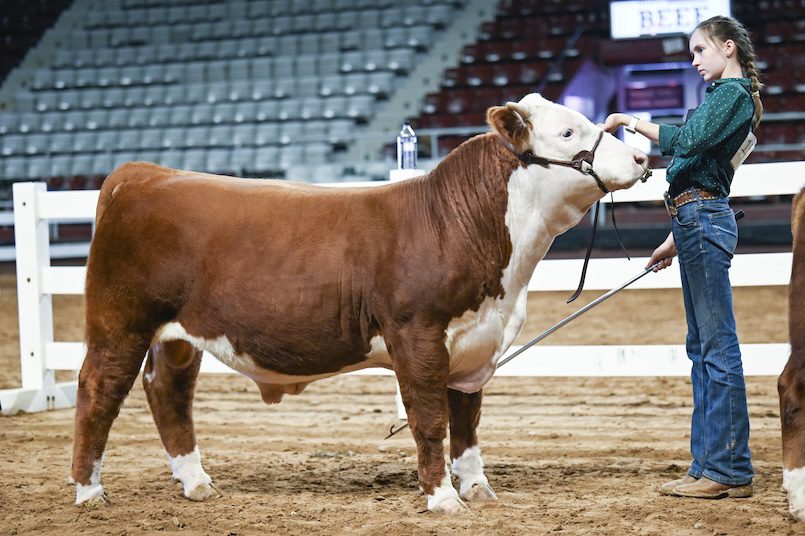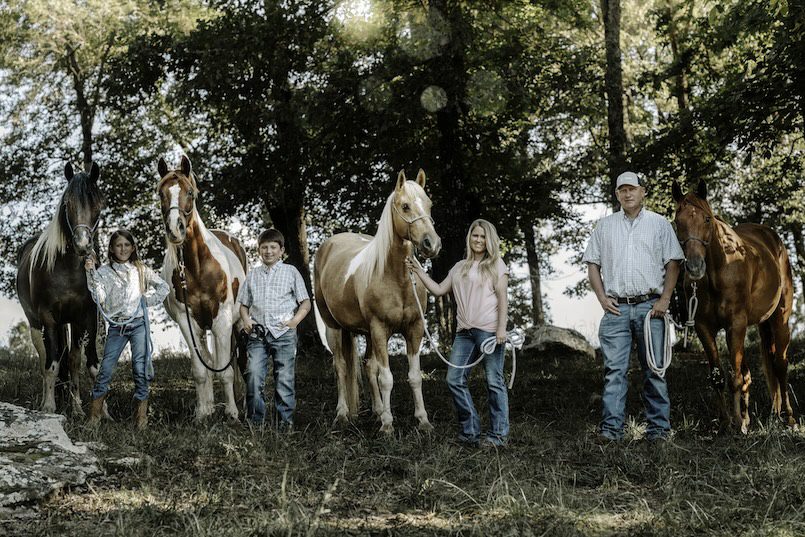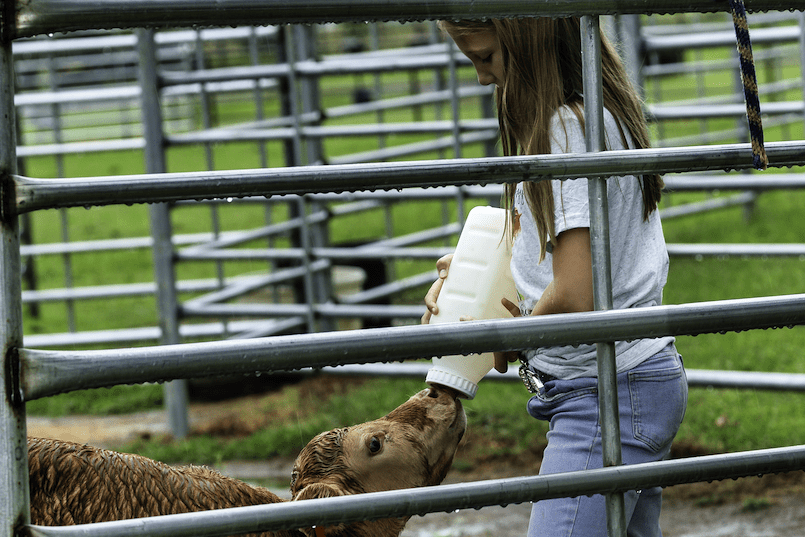08 Sep 2024 Two Central Arkansas families nominated for Arkansas Farm Family of the Year
By Judy Riley
Hard work and determination are simple words that contain a wealth of meaning.

Both concepts are played out by two families every day in every way. The Joshua and Dana Stewart family of Steprock (White County) and the Strap and Leigh Ann Brents family of Jerusalem (Conway County) are two of eight finalists vying for the 2024 Arkansas Farm Family of the Year. And their farms are in the 501.
The Stewarts took a long and winding road to get back to the farm. Dana is the actual farmer fulfilling her lifelong desire to run a farm, but it took a while. They married young, while Dana was in college and Joshua was deployed in Operation Iraqi Freedom. She finished college, then worked professionally while he finished architecture school. Seven years later, back to the farm they went. “Farming is in my DNA,” Dana said.

“From the time I could walk, I’ve spent every day I could on our family’s farm. There was never any question that I wanted farming to be a part of my legacy.” She is a sixth-generation farmer, producing livestock (cattle and goats) for Martin Cattle Co., a partnership with her parents and sisters. They care for 200 cows and 70 goats on 270 acres.
For Strap and Leigh Ann Brents, the story is similar. Strap is a fourth-generation farmer on his mother’s side and a fifth-generation farmer on his father’s side, raising cattle and chickens. But their road home was not without sacrifice. He worked as a professional welder, an electrician and a construction supervisor in the oil and gas industry, all with the goal of one day farming on his own. He and Leigh Ann bought their first 40-acre farm in 2017. It came with three chicken houses, and they soon added two more called “mega” houses.
On any given day, they house 190,000 chickens. Their original herd of five momma cows has grown to 120, and they now farm more than 700 acres, including what they own and rent. Two hundred of those acres are hay meadows. The skills that the couple learned in previous occupations enabled Strap to do his own welding, electrical troubleshooting and to manage a multifaceted farm effectively. He also works as a Tyson field representative, helping other growers.

For both families, a strong work ethic prevails. Neither Dana nor Strap married a fellow farmer, but that does not diminish their mate’s support. Joshua Stewart works by day as an architect, and Leigh Ann Brents as a kindergarten teacher. They can be found on tractors, feeding livestock and helping work cattle. They all tackle farming chores as a family.
The Stewarts and their family partners hire no outside help. Their children Jewel, 14, and Henry, 11, actively participate with cattle and goats. Jewell even helps artificially inseminate female goats. The same situation prevails for the Brents. Their 11-year-old son, Kolton, has learned to use equipment to move hay, carry supplies to the field and help work cows in general. He and his 8-year-old sister, Audie, are learning to care for animals of their own, as well as those in the herd. According to both families, that is how they want to raise children, with respect for the land and the animals that depend on it. “We want our children to learn responsibility, know where their food comes from, and learn to solve problems,” Strap said. “There is no better learning lab than right here on the farm, working with us.”

Both families embrace the latest technology in their operations. The Stewarts sell seed stock (bulls for breeding purposes) as well as pregnant heifers. They work continually to improve the genetics of their herd, resulting in stronger animals with increased muscle mass and fewer birthing problems. They continue working on pasture management, planting seasonal grasses to replenish the soil nutrients and make grass available year-round. The Brentses utilize chicken litter from their broiler houses to fertilize pastures, adding much-needed soil nutrients back to the land. Both families want to pay it forward, leaving the land better than they found it.
Farming in and of itself is risky. “Agriculture’s business partner is Mother Nature. Sometimes she is a good partner, and sometimes she is a cruel partner,” Dana said. Droughts, floods and storms are dealt with by both farmers. Sometimes, it takes years to recover from any natural disaster. But one thing is constant with farmers—the faith that there will be better days.

Each family looks to the future. In fact, each will clearly say the reason they do what they do is for the future of their family and their farm. The common thread is their love of the land, the farm way of life they want for their children, and their sheer determination to make it happen. Congratulations to these two young farm families who are perpetuating the life most only read about. To meet these two families is to be in awe of what they do, not just for the children they are raising but for the food they are putting on our tables. Color us grateful to these and other Arkansas farm families.









